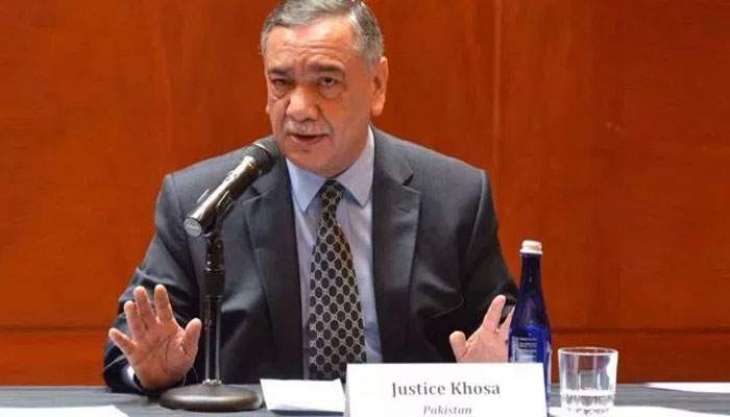Chief Justice of Pakistan (CJP) Asif Saeed Khan Khosa has said unluckily justice system is not among the priorities of parliament
ISLAMABAD (Pakistan Point News / Online - 13th April, 2019) Chief Justice of Pakistan (CJP) Asif Saeed Khan Khosa has said unluckily justice system is not among the priorities of parliament."Unluckily organ of justice is not among the priorities of parliament, therefore, like judiciary parliament and executive will have to take responsibilities of bringing improvement in justice system. Time be fixed for cases under judicial policy. This will be easier to get justice by fixing time.
Recommendations and amendments have not been presented in the parliament to improve judicial policy", he said this while addressing a conference on expeditious delivery of justice here Saturday.He said time is fixed for decisions of the cases in UK and other countries. Supreme Courts of US and UK decide 100 cases every year. Judges of no other country are doing work as much as our judges are doing. Pakistan Supreme Court has decided 26000 cases in a year.
Dispensation of inexpensive and expeditious justice is responsibility of the judiciary, he said adding motive behind setting up model courts was to provide speedy and inexpensive justice to people. Model courts were set up under a mission. Model courts objective is to remove hurdles causing delay in cases.He went on to say if lawyer does not appear for some reason then his junior will be appointed. If prosecution does not appear then alternative arrangement will be made. Presenting chemical examiner and forensic reports timely will have to be ensured.He said the model trial courts will not grant adjournments in order to ensure timely conclusion of cases.He held that police should conduct investigation of the case immediately and present the challan. Ensuring attendance of the accused persons in the courts is responsibility of the state, he added.





